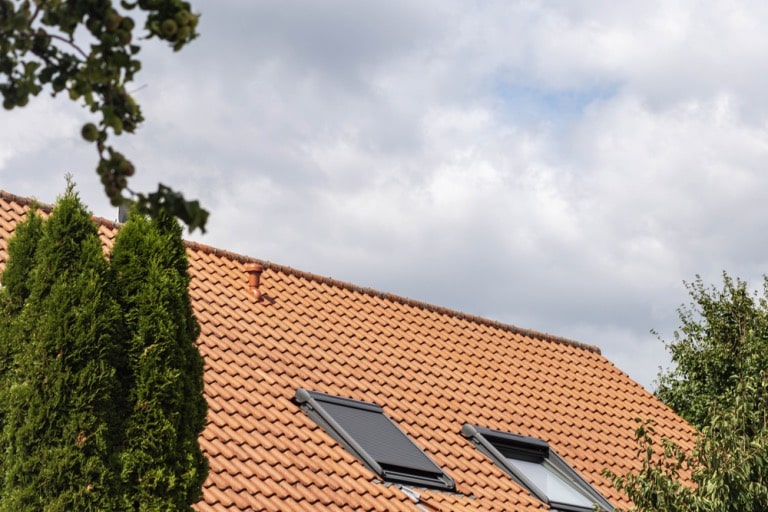A roof is one of a home’s most critical components, protecting it from harsh weather elements and contributing to its aesthetic appeal. The longevity, energy efficiency, and overall value of your property can all be strongly impacted by the roofing material you choose.
Whether you’re considering building a new house or replacing an old roof, selecting the right roofing material is a decision that will benefit you for years to come. Consulting a Bellevue roofing contractor can provide valuable insights into the best materials suited for your specific needs.
Different Types of Roofing Materials
Understanding the various roofing materials available helps you make a well-informed decision. Each material offers unique benefits and drawbacks:
- Asphalt Shingles: Because these materials are inexpensive and simple to install, they are among the most widely used roofing materials. They come in numerous styles and colors, providing a versatile choice for homeowners. Additionally, asphalt shingles are relatively easy to repair and replace, which adds to their popularity.
- Metal Roofing: Metal roofs are well-known for their extraordinary toughness and may endure for decades with little upkeep. They are energy-efficient, reflecting sunlight, which helps reduce cooling costs in the summer months. Metal roofing is available in various types, such as aluminum, copper, and steel, each offering unique benefits depending on the environment and climate.
- Clay Tiles: These tiles offer a unique and traditional aesthetic that can significantly boost your home’s curb appeal. Clay tiles are extremely durable and fire-resistant, making them a good choice for areas prone to high temperatures. However, they are also quite heavy, often requiring additional structural support for safe installation.
- Wood Shingles: Wood shingles provide a natural and rustic look, ideal for homeowners looking for an eco-friendly option. They offer good insulation benefits but do require more maintenance compared to other materials. Regular inspections and care are essential to extending the lifespan of wood shingles, as they are prone to decay and insect damage.
- Slate Roofing: Slate roofs are among the most resilient roofing materials available, and they are renowned for their longevity and timeless style. They need little upkeep and can endure for more than a century. However, the slate is extremely heavy and requires a stronger structural framework, making it more costly both in terms of materials and installation.
Pros and Cons of Roofing Materials
Each roofing material has specific pros and cons that should be considered before making a final decision:
Asphalt Shingles
- Pros: Affordable, versatile, and easy to install. Asphalt shingles also offer excellent fire resistance and are widely available.
- Cons: Less durable than other materials, typically lasting 20-30 years, and susceptible to algae growth in humid climates.
Metal Roofing
- Pros: Long-lasting, low maintenance, and energy-efficient. Metal roofs are also lightweight and can be installed over existing roofing.
- Cons: Higher upfront cost and the potential for noise during rain or hail unless soundproofing is added.
Clay Tiles
- Pros: Highly durable, aesthetically pleasing, and fire-resistant. Clay tiles also offer excellent insulation, helping to regulate indoor temperatures.
- Cons: Heavy, expensive, and may require additional structural support, which adds to the installation cost.
Wood Shingles
- Pros: Attractive, eco-friendly, and good insulation properties. They can also be treated with fire retardants to improve safety.
- Cons: Requires more maintenance and is less fire-resistant. Susceptible to rot, mold, and insect damage, particularly in humid climates.
Slate Roofing
- Pros: Extremely durable and long-lasting, often exceeding 100 years. Slate is also low maintenance and provides a timeless, elegant look.
- Cons: Heavy, costly, and difficult to install. The weight of the slate requires a solid structural framework, adding to the overall installation expense.
Maintenance Tips for Your Roof
Maintenance is necessary to guarantee the longevity and functionality of your roof. Not only can routine roof care increase its longevity, but it also aids in spotting possible problems before they become serious ones. Here are some practical tips:
- Inspect Regularly: Conduct regular inspections, especially after severe weather events, to check for damaged or missing shingles, leaks, and other potential issues. Keep an eye out for obvious damage, such as cracks or curled edges, as indicators of wear and strain. Catching these problems early can save you from more costly repairs down the line.
- Clean Gutters: Roof leaks and water damage can result from clogged gutters. Ensure your gutters are debris-free, such as leaves and twigs, to allow proper drainage. If you have trees that overhang, you should clean your gutters more regularly than once a year.
- Trim Overhanging Branches: Overhanging branches can damage your roof during storms and contribute to moss and algae growth. Trimming back these branches reduces the risk of branches falling on your roof and prevents animals from gaining easy access to your roof.
- Address Leaks Immediately: At the first sign of a leak, address it promptly to avoid more significant damage. If leaks are not fixed right away, they may cause structural damage, the growth of mold, and higher repair expenses. If you’re unsure about the source of a leak, consult a professional for a thorough inspection.
Choosing the Right Roofing Contractor
A successful roofing project depends on choosing a trustworthy roofing contractor. A qualified contractor makes sure that all safety regulations are followed and your roof is installed correctly. Here are some tips to help you choose the right one:
- Check Credentials: Check that the contractor is licensed and insured. A licensed contractor guarantees they have met the required standards to operate in your area. Insurance safeguards you from responsibility in the event of an accident while working on the project.
- Read Reviews: To learn more about the reputation and caliber of the contractor’s work, look for online reviews and acquire referrals. Positive testimonials from prior customers might give you confidence in your selection.
- Get Multiple Quotes: To discover the best deal between price and quality, compare quotations from several contractors. Extremely low bids should be prevented since they could be a sign of inexperience or inferior materials.
- Ask About Warranty: Ensure that the contractor offers a warranty on both the materials and workmanship. This provides peace of mind, knowing that any issues will be addressed without additional costs.








